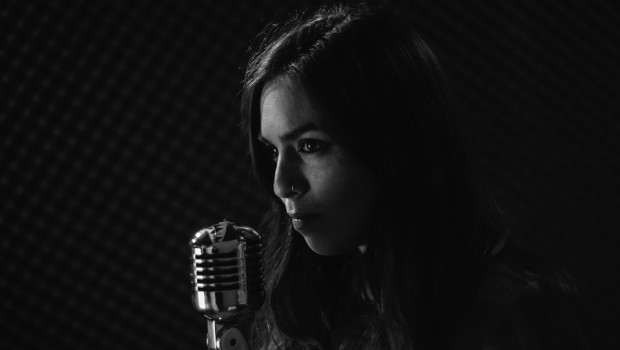
First holographic student accepted to Aldebaran Music Academy
ALDEBARAN III — Despite protests from some faculty members, the Aldebaran Music Academy has decided to accept the application of a holographic student for the first time in the school’s history.
The student in question, Cecilia, first applied to the school in 2394. Her application to the academy’s program for musical composition was originally dismissed on the grounds that a hologram was definitionally incapable of exercising a creative talent such as composing music.
Cecilia was originally part of a jazz club holoprogram created by a Tycho City holoprogrammer. Unusually high levels of activity caused Cecilia to develop a distinct personality and hone her musical talents beyond the original scope of her programming. The program’s original creator noticed this abnormal activity and allowed her program to run continuously so that she could have a degree of autonomy. After several months, Cecilia decided to compose an original piece of music and apply to the Aldebaran Music Academy, only to have her application disregarded.
Cecilia reapplied this year after the school’s Admissions Department underwent numerous staff changes. Last month, Egrim Urdaar, the school’s director of admissions, announced that the Admissions Department had overturned their previous decision and accepted Cecilia’s application for consideration. Among his reasons for overturning the decision, Urdaar cited the case of Emergency Medical Hologram v. Broht & Forrester as evidence that holographic beings were capable of producing artistic works. While not case law, the legal dispute did provide sufficient cause to reverse the school’s stance on accepting applications from holographic beings.
Yesterday, Cecilia announced that the Aldebaran Music Academy accepted her application and that she will be admitted to the school next year as a member of the Class of 2399. Advocates for the rights of holograms are celebrating this decision as another step towards the extension of full rights to sentient holograms.
“The Aldebaran Music Academy has a long history of fostering some of the greatest musical talents for generations,” said Urdaar in a public statement. “We will continue to offer the opportunity for any and all future musicians and composers to study music at our institution.”
Experts expect this decision to renew debate surrounding the rights of sentient holograms both in general and as artists specifically. The Aldebaran Music Academy, with the permission of Cecilia, has released the original composition included in her application for public enjoyment.
Want to Write Your Own Star Trek Stories?
The Federation News Service is written by members of StarBase 118, a Star Trek play-by-email RPG running since 1994. Join us and create your own adventures in the Star Trek universe — all you need is an email address.
Join StarBase 118 TodayOr explore free Star Trek ebooks written by our community → trekstories.net
Stay Informed with Federation News Service
Subscribe to receive the latest updates from across the Federation.


 Previous Article
Previous Article Next Article
Next Article Scandal as Matteo Barana leaves Trinity City Eagles
Scandal as Matteo Barana leaves Trinity City Eagles  Pirates cart away artifacts before damaging ancient
Pirates cart away artifacts before damaging ancient  Cultures collide on Vulcan colony as dissident movement takes majority
Cultures collide on Vulcan colony as dissident movement takes majority  F1 Circuit prepares for new Shuttle Racing Season
F1 Circuit prepares for new Shuttle Racing Season  Mysterious musician Dr Sevrin takes the Gamma Quadrant by storm
Mysterious musician Dr Sevrin takes the Gamma Quadrant by storm  Opening Minds: Author of best-selling holonovel “Telepathis” speaks out
Opening Minds: Author of best-selling holonovel “Telepathis” speaks out  Faculty choice for new Klingon history courses at University of Alpha Centauri brings controversy
Faculty choice for new Klingon history courses at University of Alpha Centauri brings controversy  First ever galactic poetry competition to be held on Risa
First ever galactic poetry competition to be held on Risa